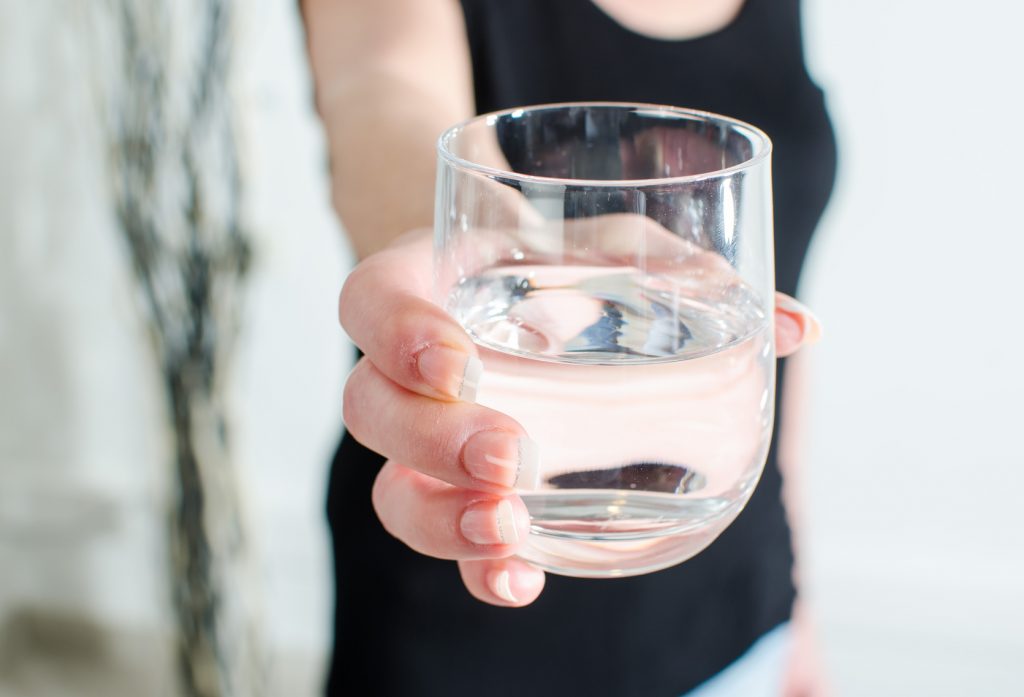Our Blog
Science Based Health Benefits of Drinking Enough Water
Recently we came upon an article that gives science based reasons why you should drink enough water. We found it quite interesting and wanted to share with you, our readers and customers, today.
The human body is comprised of approximately 60% water. And, you have probably heard you should drink eight 8-ounce (237-mL) glasses of water per day (the 8×8 rule). Although there’s little science behind this specific rule, staying hydrated is important.
Here are 7 evidence-based health benefits of drinking plenty of water. These science based benefits come from healthline.com.
1. Helps maximize physical performance
If you don’t stay hydrated, your physical performance can suffer. This is particularly important during intense exercise or high heat.
Dehydration can have a noticeable effect if you lose as little as 2% of your body’s water content. However, it isn’t uncommon for athletes to drop as much as 6–10% of their water weight via sweat. This can lead to altered body temperature control, less motivation, and fatigue. It can also make exercise feel much more difficult, both physically and mentally. Optimal hydration has been shown to prevent this from happening, and it may even reduce the oxidative stress that occurs during high intensity exercise. This isn’t surprising when you consider that muscle is about 80% water. If you exercise intensely and tend to sweat, staying hydrated can help you perform at your absolute best.
2. Significantly affects energy levels and brain function
Your brain is strongly influenced by your hydration status. Studies show that even mild dehydration, such as the loss of 1–3% of body weight, can impair many aspects of brain function.In a study in young women, researchers found that fluid loss of 1.4% after exercise impaired both mood and concentration. It also increased the frequency of headaches.
Many members of this same research team conducted a similar study in young men. They found that fluid loss of 1.6% was detrimental to working memory and increased feelings of anxiety and fatigue. A fluid loss of 1–3% equals about 1.5–4.5 pounds (0.5–2 kg) of body weight loss for a person weighing 150 pounds (68 kg). This can easily occur through normal daily activities, let alone during exercise or high heat. Many other studies, with subjects ranging from children to older adults, have shown that mild dehydration can impair mood, memory, and brain performance.

3. May help prevent and treat headaches
Dehydration can trigger headaches and migraine in some individuals. Research has shown that a headache is one of the most common symptoms of dehydration. For example, a study in 393 people found that 40% of the participants experienced a headache as a result of dehydration.
What’s more, some studies have shown that drinking water can help relieve headaches in those who experience frequent headaches. A study in 102 men found that drinking an additional 50.7 ounces (1.5 liters) of water per day resulted in significant improvements on the Migraine-Specific Quality of Life scale, a scoring system for migraine symptoms. Plus, 47% of the men who drank more water reported headache improvement, while only 25% of the men in the control group reported this effect.
However, not all studies agree, and researchers have concluded that because of the lack of high quality studies, more research is needed to confirm how increasing hydration may help improve headache symptoms and decrease headache frequency.
4. Can aid weight loss
Drinking plenty of water can help you lose weight. This is because water can increase satiety and boost your metabolic rate.
Some evidence suggests that increasing water intake can promote weight loss by slightly increasing your metabolism, which can increase the number of calories you burn on a daily basis. A 2013 study in 50 young women with overweight demonstrated that drinking an additional 16.9 ounces (500 mL) of water 3 times per day before meals for 8 weeks led to significant reductions in body weight and body fat compared with their pre-study measurements.
The timing is important too. Drinking water half an hour before meals is the most effective. It can make you feel more full so that you eat fewer calories. In one study, dieters who drank 16.9 ounces (0.5 liters) of water before meals lost 44% more weight over a period of 12 weeks than dieters who didn’t drink water before meals.
To read about more science based health benefits of drinking water, be sure and check out the entire list found here. And to order the best tasting water in the business, call Fontis Water today. Our 100% pure spring water is delivered to homes and offices throughout metro Atlanta. Our mission is to deliver the best, most preferred natural mountain spring water with unmatched customer service and genuine enthusiasm. It’s been a family tradition since 1980.